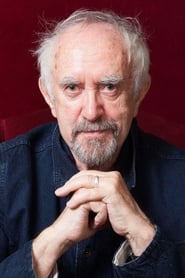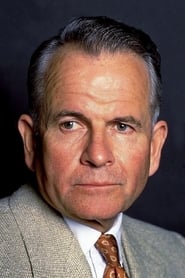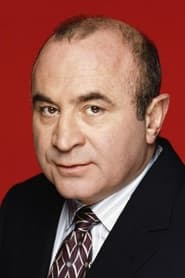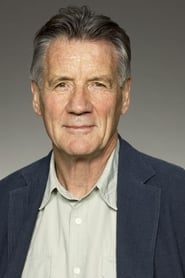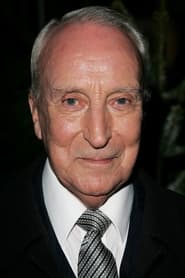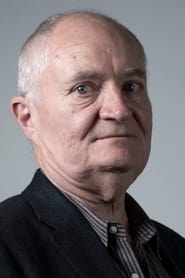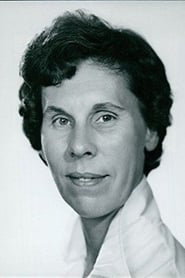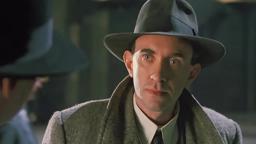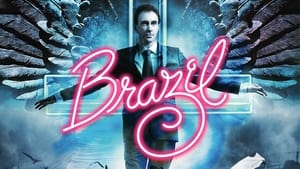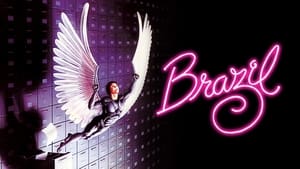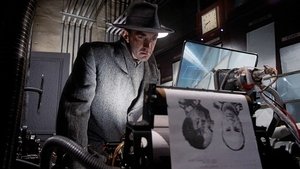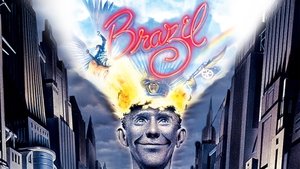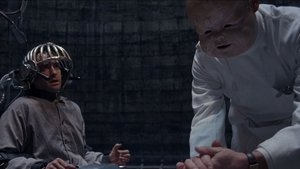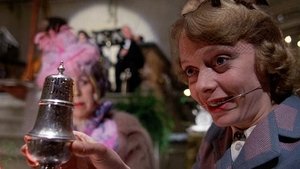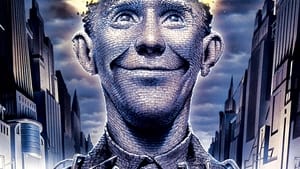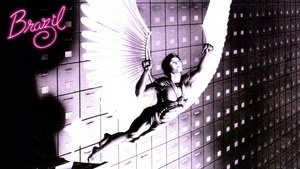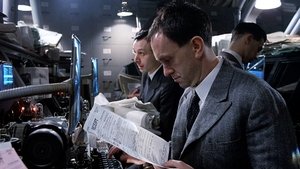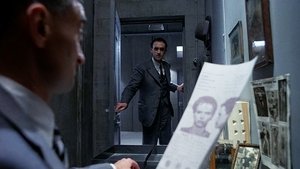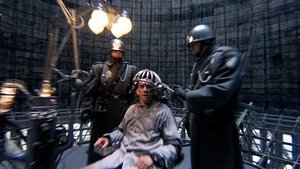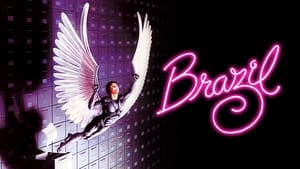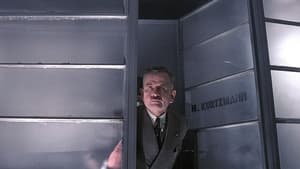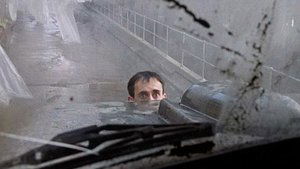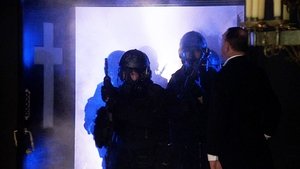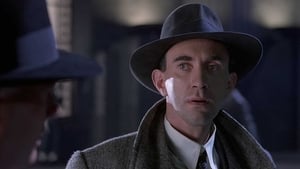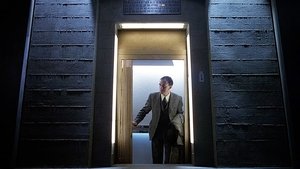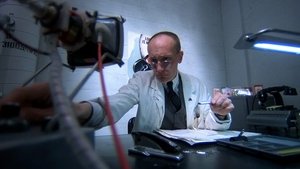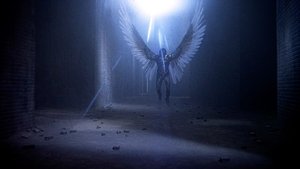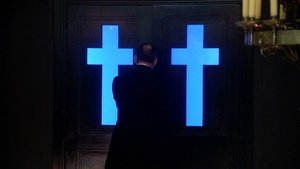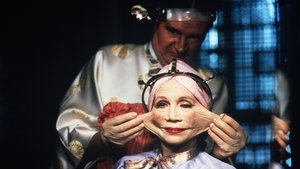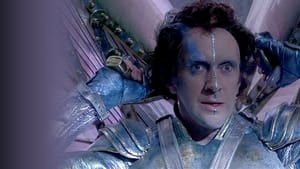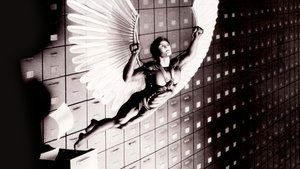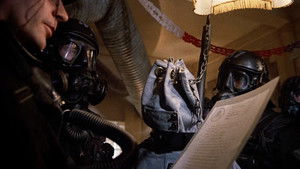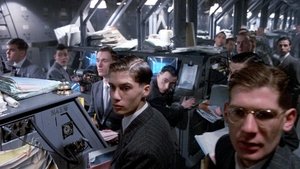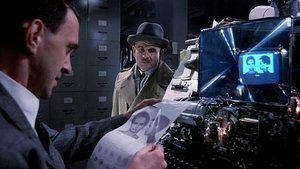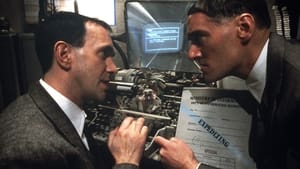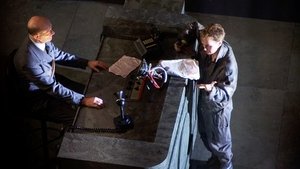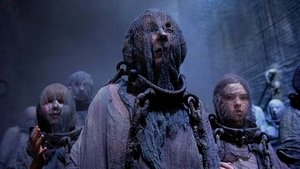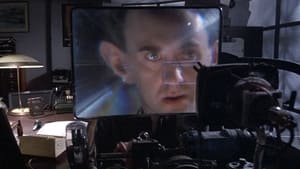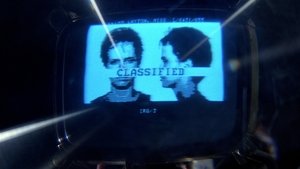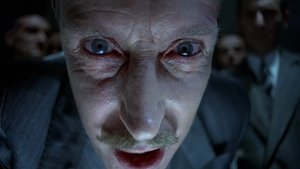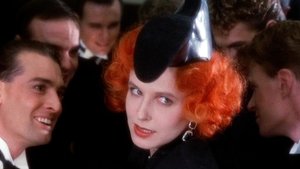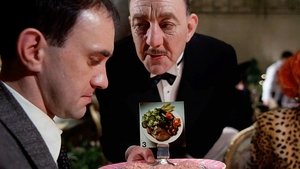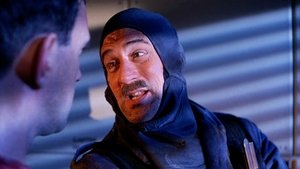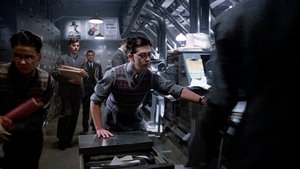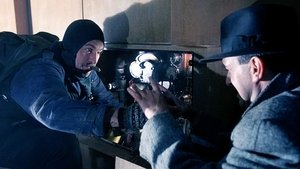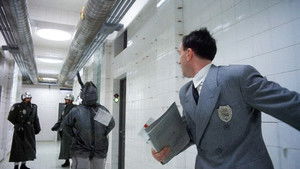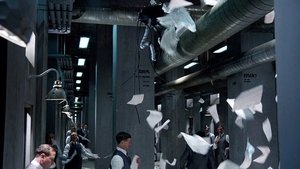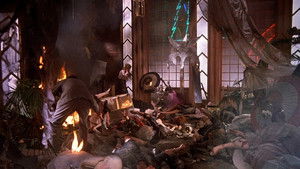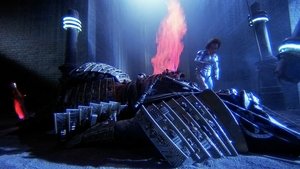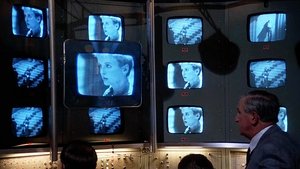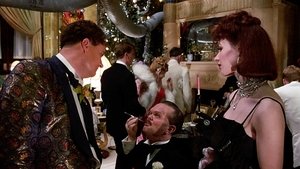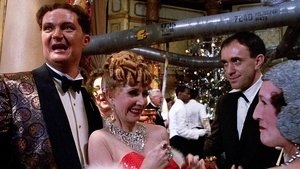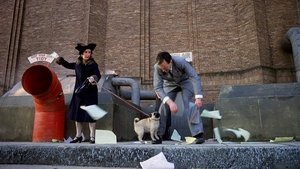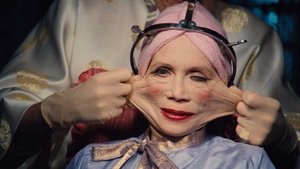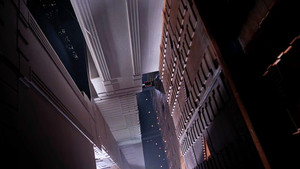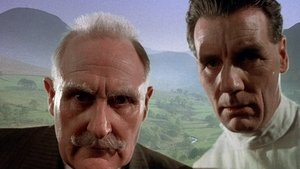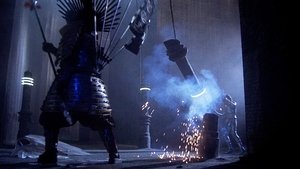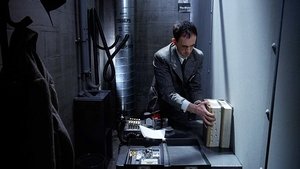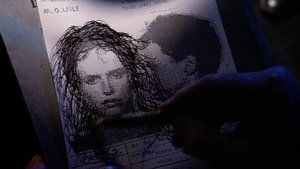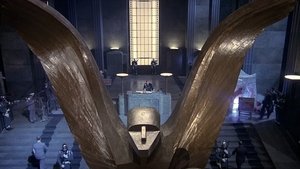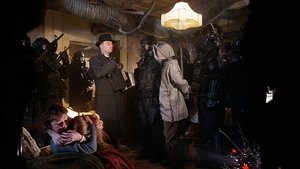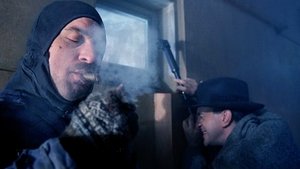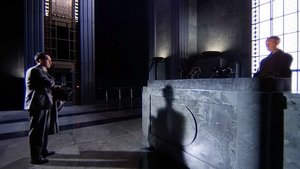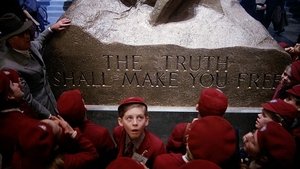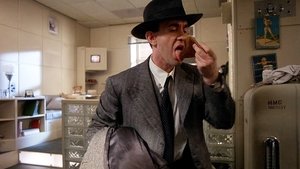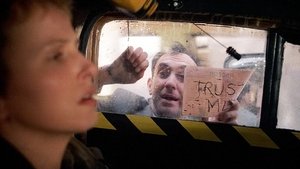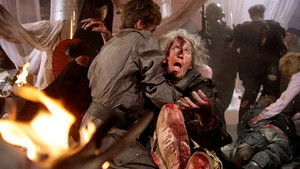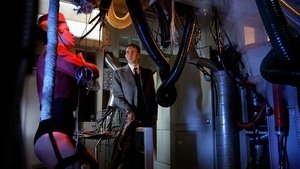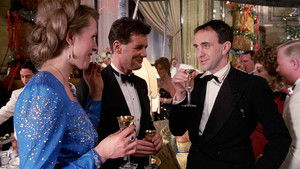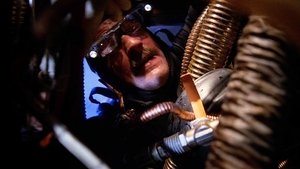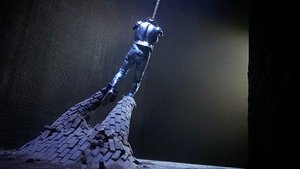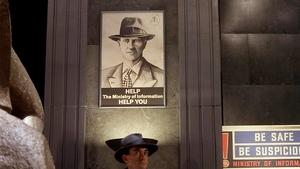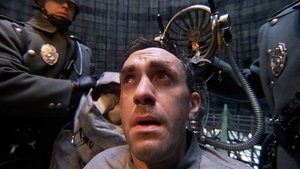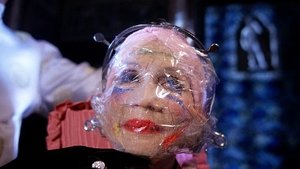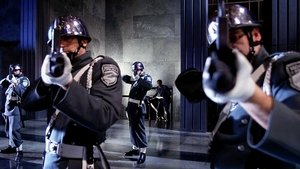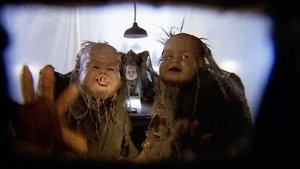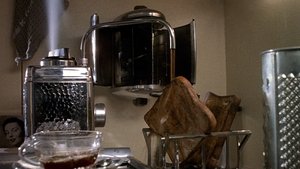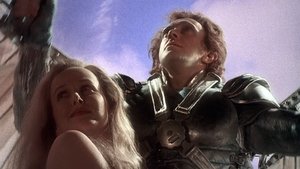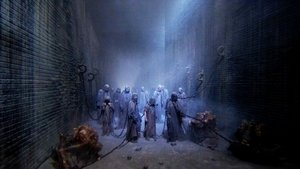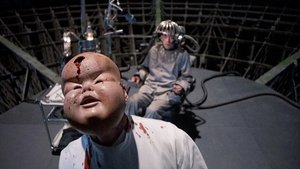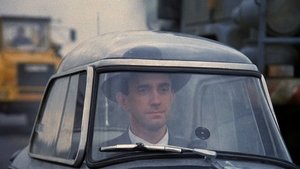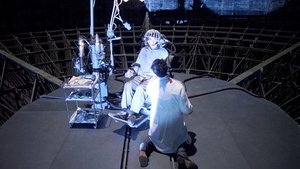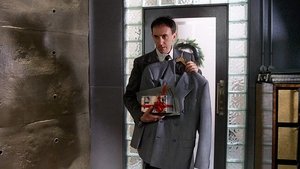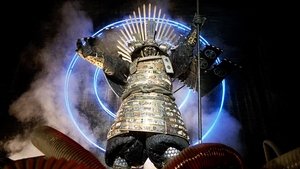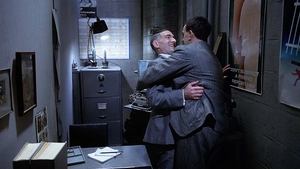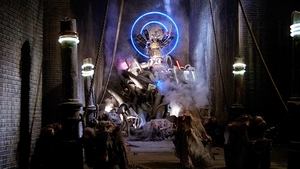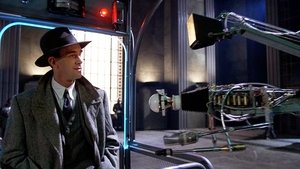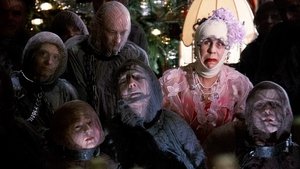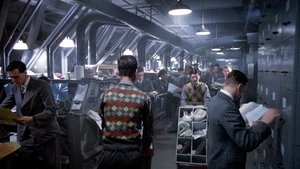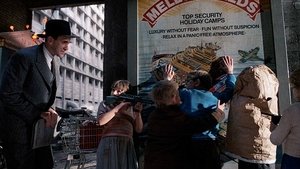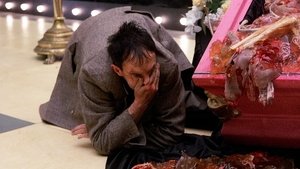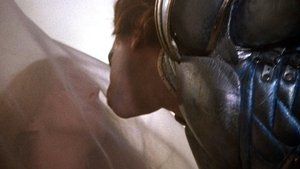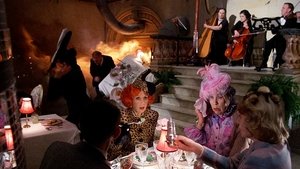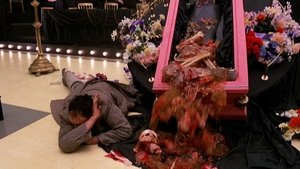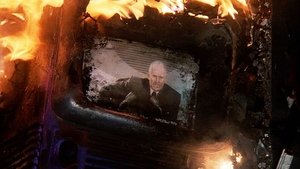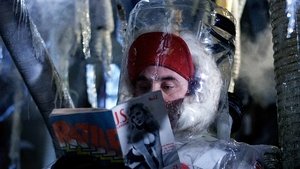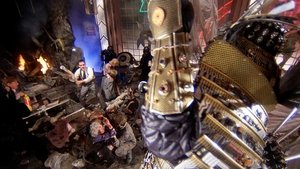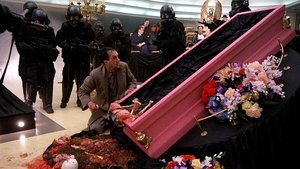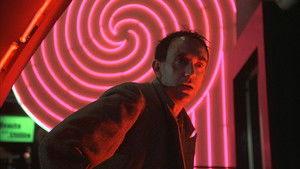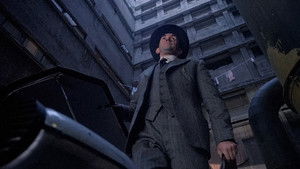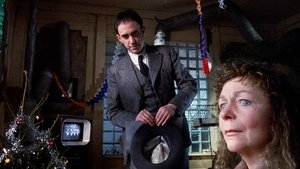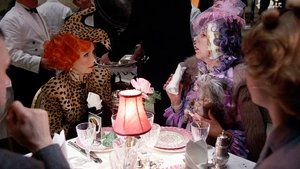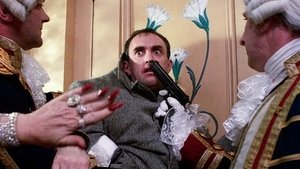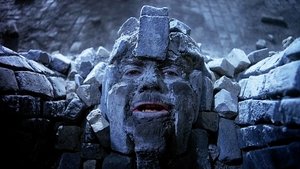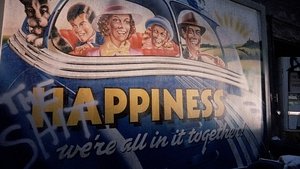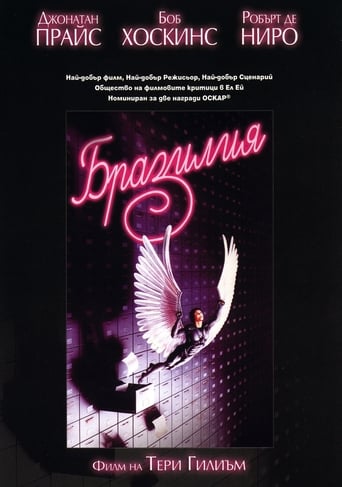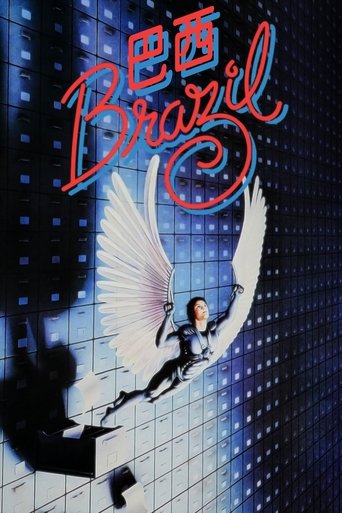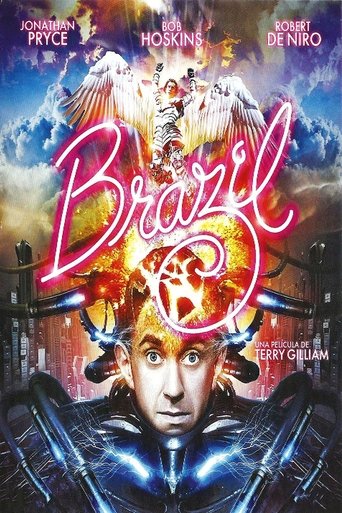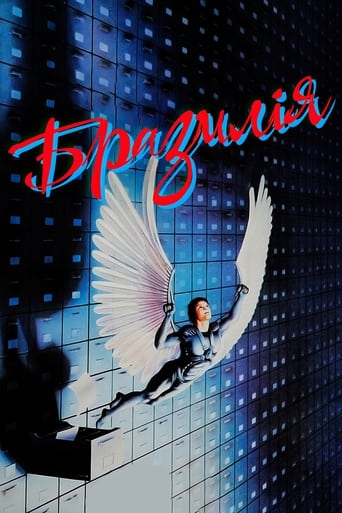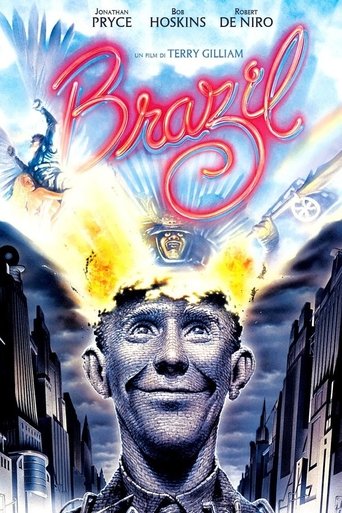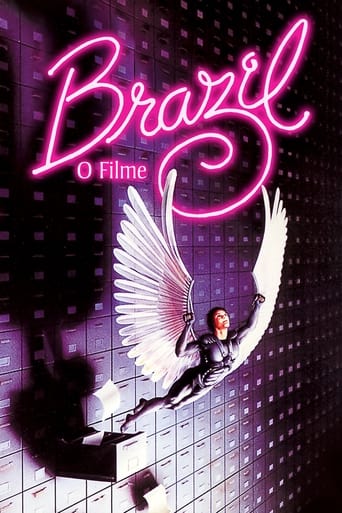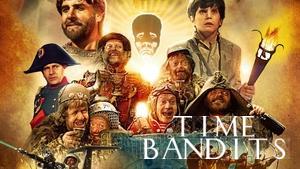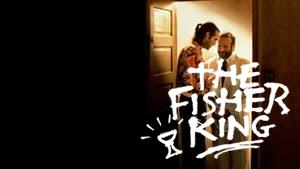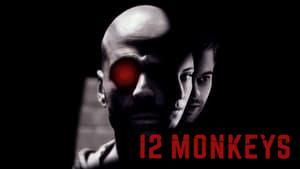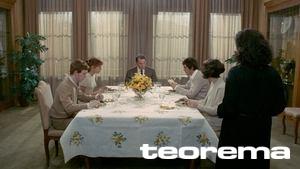
Brazil
It's only a state of mind.
1985 | 143m | English
Popularity: 12 (history)
| Director: | Terry Gilliam |
|---|---|
| Writer: | Charles McKeown, Terry Gilliam, Tom Stoppard |
| Staring: |
| Low-level bureaucrat Sam Lowry escapes the monotony of his day-to-day life through a recurring daydream of himself as a virtuous hero saving a beautiful damsel. Investigating a case that led to the wrongful arrest and eventual death of an innocent man instead of wanted terrorist Harry Tuttle, he meets the woman from his daydream, and in trying to help her gets caught in a web of mistaken identities, mindless bureaucracy and lies. | |
| Release Date: | Feb 20, 1985 |
|---|---|
| Director: | Terry Gilliam |
| Writer: | Charles McKeown, Terry Gilliam, Tom Stoppard |
| Genres: | Comedy, Science Fiction |
| Keywords | bureaucracy, police state, great britain, office, dreams, technology, dystopia, government, satire, surrealism, steampunk, dark comedy, terrorism, bombing, job promotion, repairman, disturbed, christmas, irreverent, absurd, incredulous, ambiguous, baffled, preposterous |
| Production Companies | Embassy International Pictures |
| Box Office |
Revenue: $9,953,708
Budget: $15,000,000 |
| Updates |
Updated: Jan 10, 2026 Entered: Apr 13, 2024 |
| Name | Character |
|---|---|
| Jonathan Pryce | Sam Lowry |
| Robert De Niro | Harry Tuttle |
| Katherine Helmond | Mrs. Ida Lowry |
| Ian Holm | Mr. Kurtzmann |
| Bob Hoskins | Spoor |
| Michael Palin | Jack Lint |
| Ian Richardson | Mr. Warrenn |
| Peter Vaughan | Mr. Helpmann |
| Kim Greist | Jill Layton |
| Jim Broadbent | Dr. Jaffe |
| Barbara Hicks | Mrs. Alma Terrain |
| Charles McKeown | Lime |
| Derrick O'Connor | Dowser |
| Kathryn Pogson | Shirley |
| Bryan Pringle | Spiro |
| Sheila Reid | Mrs. Buttle |
| John Flanagan | T.V. Interviewer / Salesman |
| Roger Ashton-Griffiths | Priest |
| John Pierce Jones | Basement Guard |
| Nigel Planer | Charlie--Dept. of Works |
| Terence Bayler | T.V. Commercial Presenter |
| Gorden Kaye | M.O.I. Lobby Porter |
| Jack Purvis | Dr. Chapman |
| Howard Lew Lewis | Black Maria Guard |
| Ray Cooper | Technician |
| Brian Miller | Mr. Buttle |
| Simon Jones | Arrest Official |
| Derek Deadman | Bill - Dept. of Works |
| Bill Wallis | Bespectacled Lurker |
| Myrtle Devenish | Typist in Jack's Office |
| Ann Way | Old Lady with Dog |
| Don Henderson | First 'Black Maria' Guard |
| Oscar Quitak | Interview Official |
| Harold Innocent | Interview Official |
| John Grillo | Interview Official |
| Ralph Nossek | Interview Official |
| David Gant | Interview Official |
| James Coyle | Interview Official |
| Patrick Connor | Cell Guard |
| Elizabeth Spender | Alison / 'Barbara' Lint |
| Russell Keith Grant | Young Gallant at Funeral |
| Terry Gilliam | Smoking Man (uncredited) |
| Name | Job |
|---|---|
| Roger Pratt | Director of Photography |
| James Acheson | Costume Design |
| Julian Doyle | Editor |
| Michael Kamen | Original Music Composer |
| Margery Simkin | Casting |
| David Appleby | Still Photographer |
| Charles McKeown | Screenplay |
| Ary Barroso | Music |
| Vic Armstrong | Stunts |
| Greg Powell | Stunts |
| Norman Garwood | Production Design |
| Terry Gilliam | Director, Screenplay |
| Tom Stoppard | Screenplay |
| Irene Lamb | Casting |
| Rodney Glenn | Sound Editor |
| Paul Carr | Sound Re-Recording Mixer |
| John Beard | Art Direction |
| Keith Pain | Art Direction |
| Graham Ford | Production Manager |
| Françoise Benoît-Fresco | Assistant Art Director |
| Dennis Bosher | Assistant Art Director |
| Bob Doyle | Sound Recordist |
| David Garfath | Camera Operator |
| Roy Rodhouse | Gaffer |
| Penny Eyles | Script Supervisor |
| Geoff Freeman | Publicist |
| Alan Arnold | Publicist |
| Elaine Carew | Makeup & Hair |
| Sallie Evans | Makeup & Hair |
| Meinir Jones-Lewis | Makeup & Hair |
| Sandra Shepherd | Makeup & Hair |
| Aaron Sherman | Prosthetic Makeup Artist |
| Maggie Weston | Makeup Designer, Hair Designer |
| George Ball | Property Master |
| Gary Dawson | Property Master |
| Richard Conway | Visual Effects |
| Andrew Garnet-Lawson | Scenic Artist |
| Chuck Finch | Best Boy Electric |
| Perry Evans | Electrician |
| Name | Title |
|---|---|
| Arnon Milchan | Producer |
| Patrick Cassavetti | Producer |
| Organization | Category | Person | |
|---|---|---|---|
| Spirit Awards | Best Supporting Actor | Kim Greist | Nominated |
Popularity History
| Year | Month | Avg | Max | Min |
|---|---|---|---|---|
| 2024 | 4 | 34 | 51 | 20 |
| 2024 | 5 | 40 | 80 | 23 |
| 2024 | 6 | 40 | 59 | 30 |
| 2024 | 7 | 46 | 62 | 30 |
| 2024 | 8 | 36 | 50 | 20 |
| 2024 | 9 | 19 | 41 | 12 |
| 2024 | 10 | 19 | 36 | 13 |
| 2024 | 11 | 20 | 27 | 14 |
| 2024 | 12 | 25 | 34 | 15 |
| 2025 | 1 | 26 | 60 | 16 |
| 2025 | 2 | 18 | 29 | 3 |
| 2025 | 3 | 8 | 24 | 1 |
| 2025 | 4 | 5 | 9 | 3 |
| 2025 | 5 | 4 | 10 | 3 |
| 2025 | 6 | 5 | 8 | 3 |
| 2025 | 7 | 3 | 5 | 2 |
| 2025 | 8 | 3 | 4 | 2 |
| 2025 | 9 | 4 | 5 | 3 |
| 2025 | 10 | 4 | 6 | 2 |
| 2025 | 11 | 5 | 7 | 3 |
| 2025 | 12 | 6 | 8 | 4 |
| 2026 | 1 | 7 | 12 | 5 |
Trending Position
| Year | Month | High | Avg |
|---|---|---|---|
| 2026 | 1 | 664 | 865 |
| Year | Month | High | Avg |
|---|---|---|---|
| 2025 | 12 | 545 | 846 |
| Year | Month | High | Avg |
|---|---|---|---|
| 2025 | 11 | 478 | 731 |
| Year | Month | High | Avg |
|---|---|---|---|
| 2025 | 10 | 378 | 795 |
| Year | Month | High | Avg |
|---|---|---|---|
| 2025 | 9 | 359 | 751 |
| Year | Month | High | Avg |
|---|---|---|---|
| 2025 | 8 | 339 | 690 |
| Year | Month | High | Avg |
|---|---|---|---|
| 2025 | 7 | 255 | 585 |
| Year | Month | High | Avg |
|---|---|---|---|
| 2025 | 6 | 79 | 490 |
| Year | Month | High | Avg |
|---|---|---|---|
| 2025 | 5 | 261 | 686 |
| Year | Month | High | Avg |
|---|---|---|---|
| 2025 | 4 | 369 | 749 |
| Year | Month | High | Avg |
|---|---|---|---|
| 2025 | 3 | 491 | 766 |
| Year | Month | High | Avg |
|---|---|---|---|
| 2025 | 2 | 461 | 755 |
| Year | Month | High | Avg |
|---|---|---|---|
| 2025 | 1 | 417 | 765 |
| Year | Month | High | Avg |
|---|---|---|---|
| 2024 | 12 | 33 | 460 |
| Year | Month | High | Avg |
|---|---|---|---|
| 2024 | 11 | 704 | 903 |
One of my all time favourite sci fi movies. Set the bench mark for modern sci fi, should be considered a great like Blade Runner. Great acting, story, soundtrack! 5/5 ...
**A film that was enough for more than one review: dream, nightmare, utopia and reality.** It was in 1939 that composer and singer-songwriter Ary Barroso released the iconic song “Aquarela do Brasil”. This samba became an icon of Brazilian music and was sung and disseminated by such noble voices ... as Francisco Alves, João Gilberto, Tom Jobim, Caetano Veloso, Tim Maia, Gal Costa, Erasmo Carlos, Elis Regina and, in English versions, Frank Sinatra and the Portuguese Carmem Miranda. Ary Barroso, however, never imagined that the mere sight of an elderly man, sitting on a beach on a rainy day while listening to his song, would end up inspiring Terry Gilliam to make a film. But, before these words can mislead anyone, and especially any Brazilian, it is necessary to clarify that the film has nothing to do with Brazil. The film takes place in an unnamed country that lives under a dictatorship (okay, Brazil was a dictatorship when the film was released, but the similarity ends there). The government, obsessed with controlling information, has created a monstrous and highly ineffective bureaucratic system that makes fatal mistakes. It is because of one of these mistakes that a citizen is arrested and killed as a revolutionary, mistaken for the real fugitive. And so we meet Sam Lowry, a government official with a conventional life who is plagued by dreams where he flies like a bird and saves a damsel in distress. His life changes precisely when he meets a woman like the one in the dream and finds that she, too, is in danger of being arrested for another mistake. I haven't seen both movies, but I believe the critics who said there were similarities between this movie and "1984". I myself could see the similarities with “Metropolis”, either in the narrative or in the bizarre and exaggerated visual aspects. As in those films, we have a dystopian, totalitarian society, where the individual is stripped of his humanity and becomes a cog in a larger gear, serving the State. Of course, the film weaves a long and judicious critique around this, and the bureaucracy that the country sustains, and which is of little practical use. It also offers us some sharp criticisms of the futile needs and vanity of today's society. The big problem is that all this seems to have no meaning. In fact, the main plot ignores these issues: Sam, the main character, is not a revolutionary nor does he seem to have political ideas. In fact, if you look closely, he seems to act almost on instinct, living his life as if it were a dream. The main plot is underutilized and poorly harmonizes with the rest of the film, as if it conflicts with the visuals and the other points of the script. Gilliam made an original film. Where he failed was in the harmonic conjunction of the pieces in his work. And of course, in the relationship with the studios, which almost forced him to accept a radical cut in the film, considered excessively long and expensive. In fairness, I can understand both sides: the studios were trying to monetize an investment and rationalize expenses; for his part, Gilliam did not want his creative work done in pieces, although it is clear where the money was spent: just look at the incredible visuals, the dreamlike way in which he expresses himself as a director. Jonathan Pryce is the featured actor playing Sam. He gives us a work of great quality and is very well assisted by Katherine Helmond, in a very interesting sarcastic role, and Kim Greist, his romantic partner. The film also features the participation of great actors of the time, namely Bob Hoskins, Jim Broadbent, Barbara Hiks, Ian Holm, Michael Palin and Robert De Niro. This perhaps shows the prestige and consideration that the artistic world already had for Gilliam: the actors, more than having a good salary, wanted to work with him. All of this is very nice, but why is the film called Brazil, and why did I mention it in a song? I was also thinking about this for some time, it really is something that does not seem understandable at first glance. I saw the film and nothing seemed to give me the answer to the choice of title, except the insistence on the song, which is the skeleton on top of which the film's soundtrack was assembled. But perhaps Gilliam was trying to show us, through this song, the dreamlike utopia of Sam's dream compared to the fantasies of others and the dystopian reality of his life.
